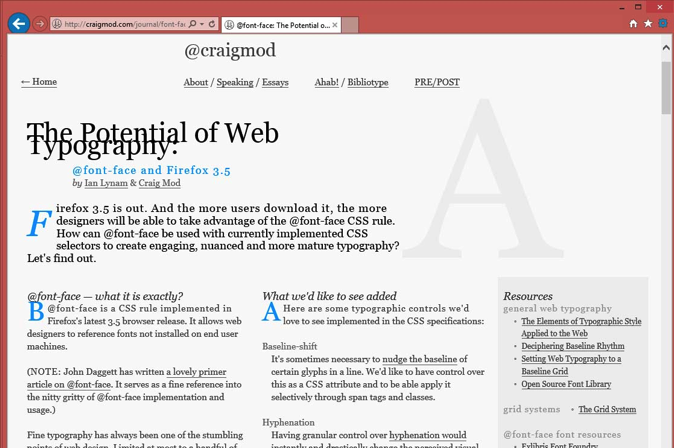Fm 2005 Download Completo Incompleto


Methods Cognitive screening tests as well as memory complaint questionnaires validated for the Brazilian population were used: the Mini-Mental State Examination (MMSE), Geriatric Depression Scale (GDS), Memory Complaint Questionnaire (MAC-Q), Memory test of 18 pictures, Forward and Backward Digit Span (WAIS-III). Fifty seven regular members of the SESC social club participated (50 women), having a mean age of 71.4 years, and 4 to 8 years of education - 34 from 4 to 7 years and 23 with 8 years of education. Memory complaints are known to be part of the meta-memory construct. This construct refers to knowledge and beliefs held about memory.
It encompasses the knowledge we have on the mnemonic demands imposed by different tasks and situations, as well as the knowledge about the strategies which may be employed to enhance memory efficiency. Complaints and concerns regarding memory are present in the population at large but tend to become more prevalent with increasing age. Many studies have investigated the significance of memory complaints in older adults and principally, have sought to identify the existence of an association between subjective perception of memory loss and objective impairment verified by objective testing., The association between objective memory (performance on memory tasks) and subjective memory (complaints, perceptions, affects, beliefs about memory) has been the subject of study for at least 30 years.
Moreover, the extent to which memory complaints are predictive of age-associated cognitive decline and dementia onset has been investigated in the clinical context. A broad range of studies on the association between subjective and objective memory are available in the international literature. These findings, however, remain controversial. The majority of cross-sectional studies have found no strong association between memory complaints and performance. Nevertheless, several cross-sectional studies showing a positive association between complaints and cognitive decline are worthy of note. Jonker and colleagues conducted a study involving 2367 patients without dementia or depressive symptoms and found a strong association between memory complaints and poor performance on the animal category verbal fluency test, even after adjusting for age, gender and verbal intelligence.
A significant correlation between memory complaints and the presence of depressive symptoms has also been reported in cross sectional studies – a relationship which appears to be stronger than the association between complaints and cognitive performance.,- Studies such as that the one conducted by Hanninen and colleagues, have reported that individuals with cognitive complaints have a greater propensity to present somatic complaints, as well as a greater feeling of incompetence and incapacity than non-complainers. These findings reveal that complaints are linked to other variables. For example, Van Oijen and colleagues showed that the association between memory complaints and risk of developing Alzheimer’s disease varied according to educational strata, there being a stronger link among more highly educated individuals. Thus, memory complaints among highly schooled individuals could represent a significant indicator of dementia onset.
Longitudinal studies frequently suggest that complaints are predictive of cognitive decline. Make The Teacher Walk The Plank Game Math more. As reported by Schofield and colleagues, complaints may be more informative if reported by individuals who do not present the profile of a complainer. These authors studied patients who had previously denied having a problem and who subsequently reported complaints. After a one year period, 26% of initial non-complainers had gone on to report memory complaints. These recent complainers had a five-fold higher risk of developing mild cognitive impairment than those who remained with no complaints.
Dik and colleagues conducted a six-year follow-up study in a cohort of patients, and the presence of complaints was associated with cognitive decline in two out of the four cognitive tests used. Patients with complaints performed worse than non-complainers on both the letter substitution test and the immediate recall test of the Rey Auditory Verbal Learning Test (RAVLT). However, performance on the delayed recall of the RAVLT and on the Mini-Mental State Exam (MMSE) was similar for both complainers and non-complainers.
The sample followed by Palmer and colleagues included a proportion of individuals with cognitive decline but without dementia, characterized by scores on the MMSE greater than or equal to 20. These authors found a positive correlation between complaints and progression to dementia after three and a half years. It should be emphasized that their statistical analysis was not adjusted to compensate for possible differences in dementia prediction due to cognitive status at study baseline. Free Capture Software Snagit more. In Brazil, the study by Mattos and colleagues compared the use of a self-report structured questionnaire versus direct questioning about memory problems in a sample of healthy community-dwelling elderly persons (63 women) without risk factors for cognitive deficits. Participants were asked about subjective memory complaints (SMC), submitted to the Memory Complaints Questionnaire (MAC-Q) and the Rey Auditory Verbal Learning Test (RAVLT). It was noted that although the presence of complaints was correlated with higher scores on the MAC-Q, a significant percentage of the sample obtained low scores on this instrument despite having presented with complaints. Moreover, some individuals without memory complaints scored highly on the MAC-Q.